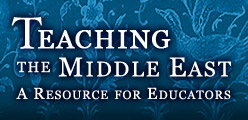Introduction
Ancient Egypt, as preserved in archaeological, visual, and textual sources, was basically a unitary society with ethnically identical or similar inhabitants sharing language and culture and looking to the king as the center and source of power and civilization. From early on, Egyptians saw themselves as distinct from people living outside of Egypt. Just as ancient Greeks thought of all non-Greeks as "barbarians," ancient Egyptians thought of themselves, and only themselves, as "people." Foreigners were frequently represented in Egyptian tomb or temple scenes with distinctive, non-Egyptian clothing and hair styles, carrying non-Egyptian material goods, bringing animals not native to Egypt, and so on; differences in skin color, facial features, and so on could be carefully rendered.
Although occasionally Egyptians noted differences between people living in different parts of the country (e.g., a New Kingdom scribe refers to another scribe's words as statements that are "so confused … they are like a Delta man's conversation with a man of Elephantine [in the far south])," at most periods there was a central capital and an elite culture centered there and spread throughout the country. Sons of the highest elites, from the capital or the provinces, were sent to the capital to study at a palace-run school where they absorbed the elite cultural assumptions and made contacts which would serve them their entire careers. In some periods, high officials were moved from place to place regularly to prevent them from developing local power bases, which could challenge the power of the king. But at the beginning of the New Kingdom, self-presentations by men who had served in the Egyptian army occasionally referred to "our army" rather than the army of King so-and-so, implying some sort of "national" identity.

 Janet H. Johnson
Janet H. Johnson
Morton D. Hull Distinguished Service Professor of Egyptology
Guiding Questions
1. How did ancient Egyptians maintain a sense of self-identity in their unitary society?
2. Why do you think elite Egyptians maintained distinct gender roles while for the more common people this line was blurred?
3. Discuss how, over time, foreigners blended in with Egyptian society. Identify modern unitary societies that have assimilated foreigners and compare their assimilation strategies.


 Print Page
Print Page

